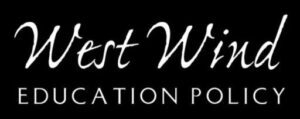SCEE National Summit on Educator Effectiveness
Two weeks ago, several West Wind Education Policy Inc. staff were in Washington, D.C. to lead the inaugural SCEE National Summit on Educator Effectiveness, Transforming State Systems for the Future. SCEE, the State Consortium on Educator Effectiveness, was convened by the Council of Chief State School Officers (CCSSO) in the fall of2010.
Nearly thirty states convened to dissect educator effectiveness from many different lenses. With facilitation from West Wind, Council of Chief State School Officers staff, and the national Comprehensive Center network, the 28 state teams set out to think about the current “state of [their] state,” their students’ and educators’ needs, and what effectiveness looks like from many different standpoints.
For West Wind, it was rewarding to see the summit unfold after much planning, conceptualizing, webinars, blog posts, and more than a little sweat that led up to the Summit.
West Wind was particularly proud of the work we led in four of the six breakout strands: Teacher Evaluation; Leader Evaluation; Professional Development and Policy and Systems Change. Deb Hansen was the strand leader for Professional Development, where she worked closely with Stephanie Hirsh of Learning Forward to design an interactive and engaging series of activities for state teams using—believe it or not—the principles of high quality professional development in their delivery. Circe Stumbo and Deanna Hill coordinated the Policy and Systems Change strand, where we wove into the work not only our framework for Systemic Equity Leadership but also the work of Summit keynoter Michael Fullan. Fullan’s two articles on whole-system reform helped states recognize the need for thinking broadly about their vision for education and strategically about the drivers they prioritize in rolling out reform.
Playing as a tag-team, Deanna helped Circe to represent West Wind in the set-up session to both the teacher and leader evaluation strands. There, we were able to interject considerations of equity into the policy and technical conversations about the design of statewide evaluation systems.
All in all, the hope remains that these deliberations, which were initiated from the many discussions at the summit, can bring continued collaboration and participation. West Wind looks forward to continuing its work with the states as they progress.

